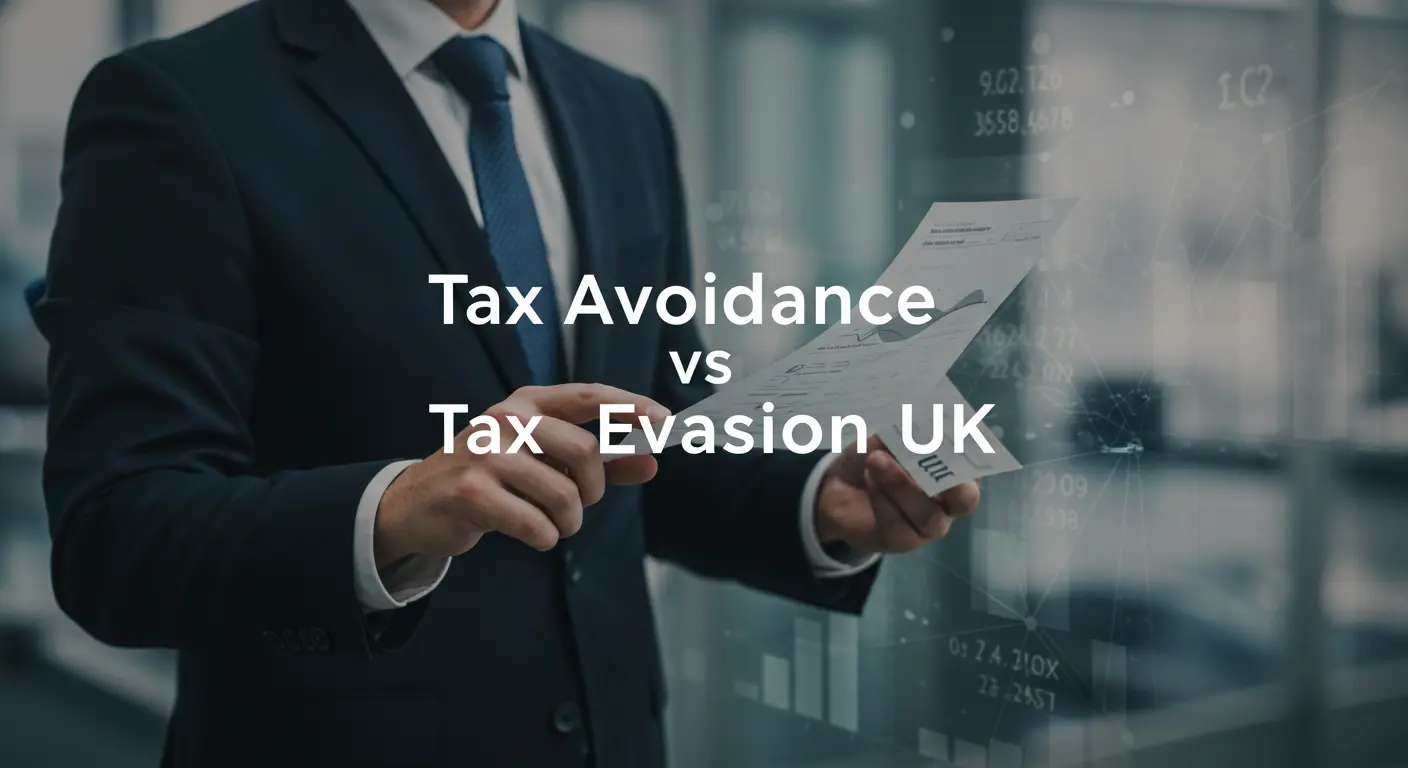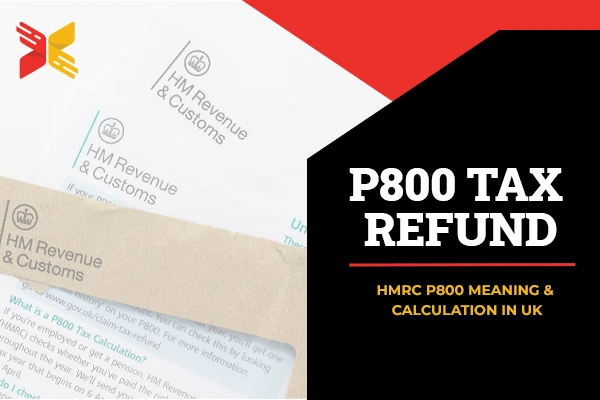Tax Avoidance vs Tax Evasion
In the UK, the distinction between Tax Avoidance and Tax Evasion is critical. Both deal with lowering tax bills, but in drastically different ways. Tax avoidance and tax evasion are often misunderstood and confused. The consequences, however, are not the same. Tax avoidance is the use of legal means to lower taxes. Tax evasion is a crime. The distinction between tax evasion and tax avoidance is thin but significant. Understanding it enables people and organisations to remain compliant and avoid tax penalties.
Is Tax Avoidance Legal in the UK, or Is It a Criminal Offence?
Tax avoidance is legal in the UK, but it exists in a grey area. This involves using legal methods to reduce tax liability, such as relief, allowances, or structuring income in a tax-skilled manner. However, when these methods become aggressive or artificial, they can come under the purview of tax avoidance plans. These schemes are often designed to take advantage of flaws in the tax law and can attract investigations from HMRC. While not technically illegal, such schemes may be challenged in court, and taxpayers may need to pay tax with interest and penalties.
The main distinction between tax evasion and tax is their validity. Taxes follow the letter of the law, while tax evasion breaks it. Tax evasion is a criminal offence that involves deliberately underreporting or hiding income to avoid paying taxes. Conversely, tax avoidance, although even legal, can be punished if HMRC considers it derogatory. This is why many businesses and individuals are now more cautious, especially since HMRC targets a list of avoidance schemes and actively takes legal action against them.
What Are Common Tax Avoidance Schemes, and Why Does HMRC Target Them?
HMRC maintains a tax avoidance list that contains known schemes. These usually entail contrived arrangements that provide no commercial purpose other than to avoid taxes.
Some examples of tax avoidance schemes include
- Using offshore trusts to avoid income tax
- Disguising income as loans to dodge PAYE
- Exploiting loopholes in capital gains tax rules
These tax avoidance and planning tactics aim to reduce liabilities while staying within legal limitations. However, when the HMRC detects abuse, it takes action.
Tax avoidance vs. tax evasion:
HMRC penalties can be severe. Schemes may appear ingenious, but they can result in years of audits, changes, and litigation. HMRC’s tax avoidance list is public. Anyone who makes these arrangements may be named and disgraced. This demonstrates how seriously HMRC takes avoidance. The agency has made significant investments in combating both tax avoidance schemes as well as overall evasion and avoidance.
What Are the Different Types of Tax Evasion and Their Penalties?
Tax evasion in the UK takes many forms, many of which include intentionally concealing income or inflating deductions to decrease tax liability. Common forms include underreporting income, neglecting to register for VAT, producing fraudulent invoices, concealing assets with offshore accounts, and using “cash-in-hand” arrangements without properly stating. Some people claim deductions for non-existent expenses or list dependents who do not qualify. Businesses may dodge taxes by keeping two sets of records or failing to register all sales, particularly in cash-intensive industries.
Tax evasion penalties are high and vary according to the scope and intent of the offense. HMRC can levy penalties of up to 100% of unpaid tax in domestic cases and up to 200% for offshore evasion. In egregious cases, individuals may face criminal charges, which could result in up to seven years in prison. HMRC regularly discloses the names of significant tax evaders to deter others. Aside from financial loss and reputational damage, convicted individuals may be barred from serving as business directors or holding public office.
Can You Provide Real Examples of Tax Avoidance vs Tax Evasion in the UK?
Here are some prominent tax avoidance vs. tax evasion HMRC case studies:
Tax avoidance (legal but challenged):
A UK IT contractor implemented a lending scheme that involved receiving money in the form of a loan from an offshore trust. The contractor evaded income tax. HMRC contested it years later, requesting backdated tax and interest.
Illegal tax evasion occurred when a London eatery underreported its cash income. HMRC investigated and discovered altered sales data. The owner was charged criminally and sentenced to £150,000 in fines and two years in prison.
These tax evasion vs tax avoidance examples clarify the difference between tax evasion and tax avoidance. If you’re unsure, consult with an accountant. HMRC offers guidance, but making the wrong call can trigger full-scale investigations.
What Penalties Does HMRC Impose for Tax Avoidance vs Tax Evasion?
HMRC considers tax evasion and avoidance in very different ways, particularly when it comes to fines. Tax evasion is a criminal offense with substantial penalties such as large fines, asset seizures, and possibly prison time. It entails purposefully concealing income, inflating costs, or not declaring any income at all. Because it is an obvious violation of UK law, HMRC applies harsh fines, frequently up to 100% of the tax owed, as well as interest and criminal prosecution in serious situations.
In contrast, HMRC targets tax avoidance, even if it involves aggressive techniques or the exploitation of loopholes. Tax avoidance penalties may include paying the full amount owing, interest on overdue payments, and an additional penalty of up to 30%-100%, depending on the behaviour. The five distinctions between tax evasion and tax avoidance are legality, intention, repercussions, detection risk, and public perception. While tax avoidance tries to decrease legal obligation, HMRC continues to scrutinize arrangements that it considers artificial or abusive.
Conclusion
The distinction between tax evasion and tax avoidance is more important today than ever. HMRC is tightening its digital inspection and enforcement powers. Tax avoidance and evasion are not just lawful vs criminal. It’s all about ethics, intentions, and transparency. Even legitimate tax avoidance techniques can be contested, while certain types of tax evasion carry severe penalties.
If you’re wondering, “Is avoiding taxes illegal? The answer depends on how you do it. Smart corporate finance professionals value compliance. They avoid plans on HMRC’s tax avoidance list. They do not obscure the distinction between tax evasion and tax avoidance.
















